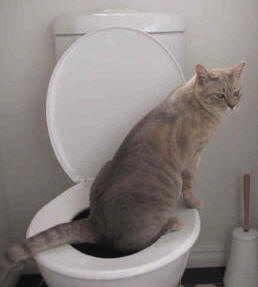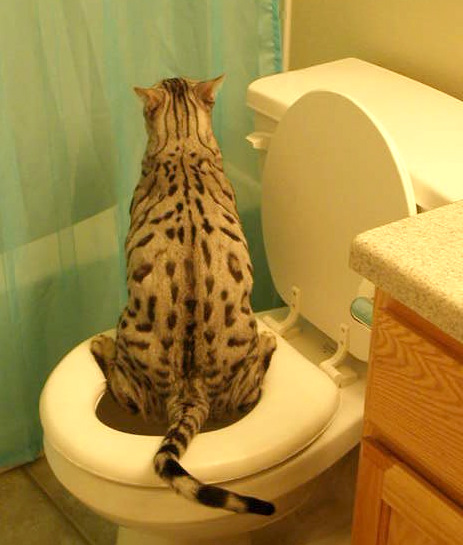Discovering the Dangers of Flushing Animal Waste Down the Toilet
Discovering the Dangers of Flushing Animal Waste Down the Toilet
Blog Article
The publisher is making a few good pointers on the subject of 10 Things You Should Never Flush Down The Toilet overall in this article beneath.

When it comes to getting rid of waste, specifically animal waste, many individuals often turn to the hassle-free choice of flushing it down the toilet. Nevertheless, this seemingly simple solution can have serious repercussions for the atmosphere and public health. In this write-up, we'll explore why flushing pet waste down the toilet is a poor idea and provide alternate approaches for correct disposal.
Intro
Appropriate garbage disposal is essential for maintaining environmental sustainability and public health. While it may seem harmless to flush animal waste down the toilet, it can bring about various problems, both for the environment and human wellness.
Risks of flushing pet waste
Environmental effect
Purging animal waste introduces damaging microorganisms and pathogens into waterways, which can adversely influence aquatic ecosystems. These pathogens can contaminate water sources and harm aquatic life, disrupting delicate ecological communities.
Public health issues
Animal waste includes dangerous germs such as E. coli and Salmonella, which can pose significant health and wellness threats to people. Flushing pet waste down the toilet can contaminate water supplies, leading to the spread of diseases and infections.
Alternatives to flushing
Rather than flushing pet waste down the bathroom, there are several alternative disposal approaches that are much more environmentally friendly and sanitary.
Composting
Composting pet waste is a green means to throw away it. By composting, raw material is broken down into nutrient-rich dirt, which can be made use of to fertilize gardens and plants.
Land fill disposal
Taking care of animal waste in a land fill is another alternative. While not as eco-friendly as composting, it is a much safer choice to flushing, as it stops the contamination of water resources.
Pet dog waste disposal systems
There are specialized family pet garbage disposal systems available that safely and hygienically dispose of animal waste. These systems frequently use enzymes to break down waste and remove odors.
Steps to appropriate pet waste disposal
To ensure proper disposal of animal waste, follow these actions:
Scooping and bagging waste
Consistently scoop and bag pet waste making use of naturally degradable bags. This avoids waste from polluting the setting.
Utilizing marked waste bins
Dispose of bagged pet waste in designated waste containers, such as compost containers or land fill containers. Prevent flushing it down the toilet in any way expenses.
Cleansing litter boxes and pet dog locations routinely
Frequently clean litter boxes and pet areas to stop the accumulation of waste and microorganisms. Use pet-safe cleansing products to maintain health.
Benefits of proper disposal methods
Embracing appropriate disposal techniques for pet waste uses numerous benefits:
Reduced environmental pollution
Appropriate disposal methods lower the risk of environmental pollution, securing waterways and communities from contamination
Lessened risk of water contamination.
By staying clear of flushing animal waste down the commode, the risk of water contamination is significantly decreased, safeguarding public health.
Improved sanitation and health
Appropriate disposal approaches promote better hygiene and health, producing a much safer atmosphere for both humans and pets.
Conclusion
In conclusion, purging pet waste down the toilet is harmful to the atmosphere and public health. By embracing different disposal methods and complying with appropriate waste monitoring techniques, we can reduce the unfavorable effect of pet waste and contribute to a cleaner, healthier planet.
What To Do With Dog Poo – The Do's And Don'ts Of Disposing Of Faeces
Dog poo bins
Some councils provide dedicated dog waste bins in popular dog-walking areas that can take dog poo that has been bagged but you can legally dispose of dog waste in any public litter bin, as long as it is securely bagged. This also applies to your wheelie bin at home.
Do not flush
Water companies do not recommend flushing dog faeces down the toilet because certain parasites can survive the water processing treatment and are potentially harmful to humans. You should also never consider flushing dog poo that has been bagged down the toilet as the bags will not break down and instead create severe blockages in the sewage system.
In the woods
The Forestry Commission promotes a ‘stick and flick’ method for dealing with waste in the woods. This means finding a stick and using it to flick any poo from off the path so that it is out of the way of other walkers. You could also bury it as long as it is not in an area where there might be livestock.
Livestock
Parasites found in dog poo can be transmitted to livestock if they inadvertently eat infected faeces that has been left on grazing land. This could result in the death of sheep or abortion in cattle so you should always make sure you pick up your dog’s waste in fields where livestock could be present.

Frequently clean litter boxes and pet areas to stop the accumulation of waste and microorganisms. Use pet-safe cleansing products to maintain health.
Benefits of proper disposal methods
Embracing appropriate disposal techniques for pet waste uses numerous benefits:
Reduced environmental pollution
Appropriate disposal methods lower the risk of environmental pollution, securing waterways and communities from contamination
Lessened risk of water contamination.
By staying clear of flushing animal waste down the commode, the risk of water contamination is significantly decreased, safeguarding public health.
Improved sanitation and health
Appropriate disposal approaches promote better hygiene and health, producing a much safer atmosphere for both humans and pets.
Conclusion
In conclusion, purging pet waste down the toilet is harmful to the atmosphere and public health. By embracing different disposal methods and complying with appropriate waste monitoring techniques, we can reduce the unfavorable effect of pet waste and contribute to a cleaner, healthier planet.
What To Do With Dog Poo – The Do's And Don'ts Of Disposing Of Faeces
Dog poo bins
Some councils provide dedicated dog waste bins in popular dog-walking areas that can take dog poo that has been bagged but you can legally dispose of dog waste in any public litter bin, as long as it is securely bagged. This also applies to your wheelie bin at home.
Do not flush
Water companies do not recommend flushing dog faeces down the toilet because certain parasites can survive the water processing treatment and are potentially harmful to humans. You should also never consider flushing dog poo that has been bagged down the toilet as the bags will not break down and instead create severe blockages in the sewage system.
In the woods
The Forestry Commission promotes a ‘stick and flick’ method for dealing with waste in the woods. This means finding a stick and using it to flick any poo from off the path so that it is out of the way of other walkers. You could also bury it as long as it is not in an area where there might be livestock.
Livestock
Parasites found in dog poo can be transmitted to livestock if they inadvertently eat infected faeces that has been left on grazing land. This could result in the death of sheep or abortion in cattle so you should always make sure you pick up your dog’s waste in fields where livestock could be present.

I was made aware of that write-up about 10 Things You Should Never Flush Down The Toilet through a pal on our other web page. Are you aware of another individual who is intrigued by the niche? Please feel free to promote it. Thanks a lot for your time. Come back soon.
Website Report this page